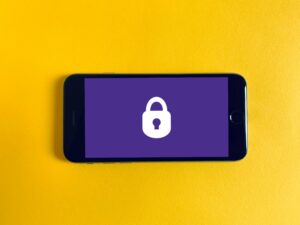Biggest Healthcare Data Breaches to Learn From
The importance of data security in healthcare has never been higher. Breach-related costs now outpace all other industries, and attacks on healthcare systems continue to rise in volume and complexity. The message is clear for providers, hospitals, and medical groups: don’t wait for a breach to assess your vulnerabilities.
Below are five of the most impactful examples of data security breaches in healthcare, drawn from UpGuard’s industry report on the most significant cyber incidents in healthcare history. We’ve highlighted what went wrong, how it could have been prevented, and what legal steps to consider if your organization is at risk.
Tricare: Backup Tapes Stolen from a Car
In 2011, backup tapes containing sensitive records for 5 million Tricare patients were stolen from a contractor’s vehicle. The data included names, Social Security numbers, lab results, and clinical notes.
What went wrong: Though encrypted, the tapes didn’t meet federal encryption standards. Transport protocols were outdated, leaving physical media exposed.
How it could’ve been avoided: Use encryption that aligns with federal standards and audit all procedures for moving or storing protected health information.
Organizations handling large volumes of data must ensure their safeguards align with HIPAA requirements. A focused HIPAA compliance audit can help identify gaps and reduce exposure.
Community Health Systems: Foreign Malware Infiltrates Network
In 2014, hackers believed to be operating from China exploited a known vulnerability to install malware, ultimately accessing 4.5 million patient records.
What went wrong? The organization had not patched critical software or conducted ongoing network threat monitoring, so warning signs were missed.
How it could’ve been avoided: Regularly update software, review the CVE database, and train staff to identify phishing and malware threats.
Cybersecurity failures often trigger regulatory scrutiny. If your systems may be vulnerable or under review, proactive legal guidance can help you prepare for audits or federal investigations.
Advocate Health Care: Unencrypted Laptops Trigger $5.5M Fine
Four laptops containing protected health information were stolen from Advocate Health Care in 2013. Over 4 million records were exposed, including names, credit card data, and insurance information.
What went wrong: The laptops were not encrypted, violating basic HIPAA security rules.
How it could’ve been avoided: Encrypt every device that stores or transmits patient data, and implement physical security practices that meet national standards like ISO 27001.
Security requirements evolve each year. Reviewing California healthcare laws and regulations can help ensure your internal policies are up to date and penalty-proof.
Medical Informatics Engineering: Hackers Went Undetected for 19 Days
In 2015, hackers used stolen login credentials to access Medical Informatics Engineering’s systems for nearly three weeks, compromising data from 11 client organizations and nearly 4 million patients.
What went wrong: Weak access controls, failure to detect unauthorized activity, and no dark web monitoring allowed the breach to continue unnoticed.
How it could’ve been avoided: Strengthen password protocols, monitor for credential leaks, and conduct regular HIPAA risk analyses.
Poor internal controls can lead to HIPAA violations, investigations, and costly settlements. A healthcare defense attorney can help your team build a compliant risk analysis framework and incident response strategy.
Shields Healthcare Group: Ignored Alerts Delay Response
In 2022, a cybercriminal accessed Shields’ network. Even after a security alert was triggered mid-breach, the activity wasn’t immediately flagged or contained, allowing the intruder to remain active for several more days.
What went wrong: The organization failed to thoroughly investigate the alert in real time, likely due to underdeveloped escalation protocols and limited internal monitoring.
How it could’ve been avoided: Implement a zero-trust security model, strengthen internal workflows, and ensure that all alerts are escalated, documented, and immediately followed up.
Delayed response to security events can worsen breach impact and increase legal risk. If your practice isn’t confident in its detection and response protocols, it’s worth reviewing them with counsel. Start by reviewing how to limit legal exposure during investigations and ensure you’re not unintentionally compounding liability.
Strengthen Your Data Security Strategy
Whether you’re concerned about vulnerabilities in your systems or responding to a breach that’s already occurred, it’s essential to understand your legal obligations under HIPAA and other healthcare regulations.
Fenton Jurkowitz Law Group helps healthcare organizations assess risk, strengthen compliance programs, and respond effectively to regulatory inquiries or patient claims related to cybersecurity incidents. Connect with a healthcare attorney today to protect your practice before or after a breach.

